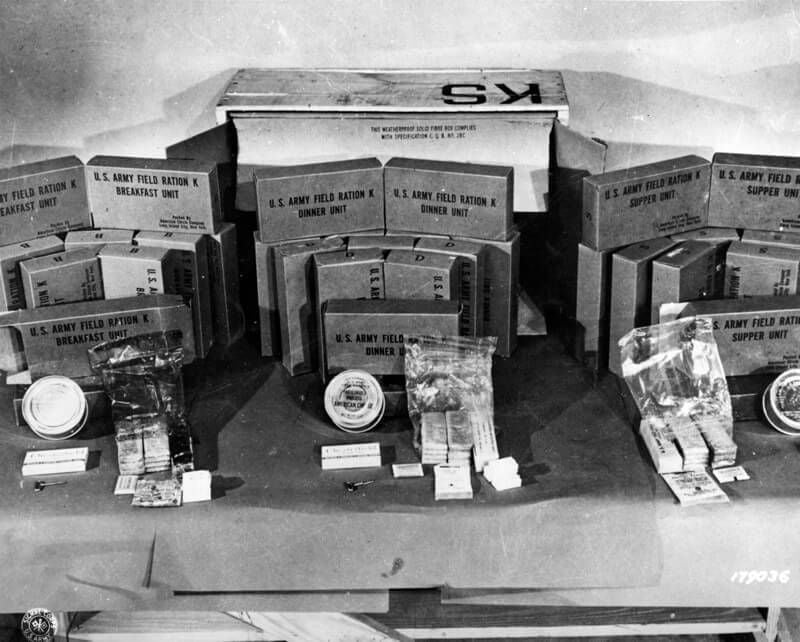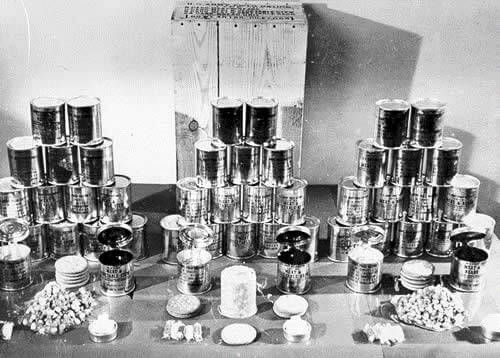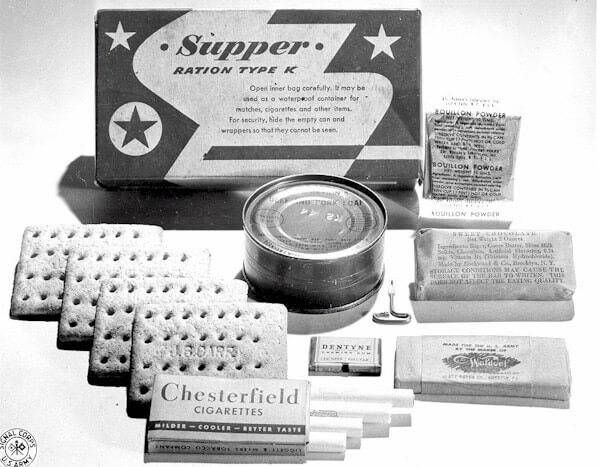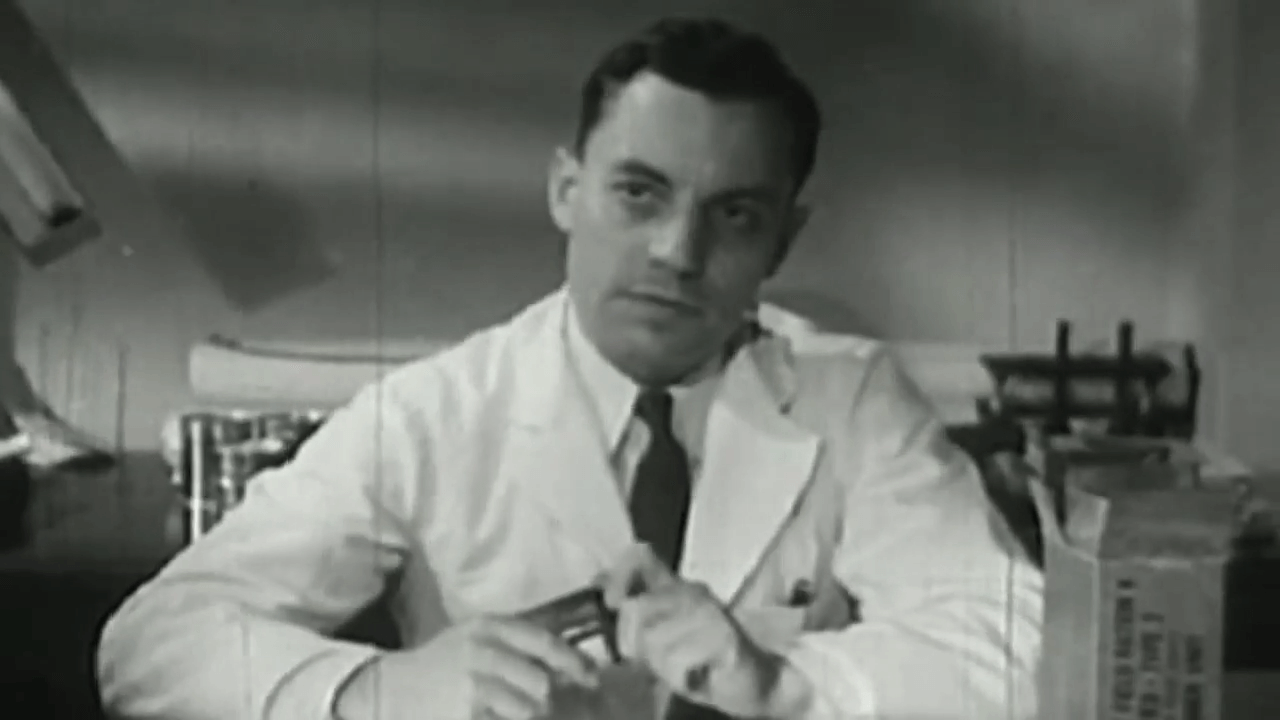Minnesota Firsts: The K Ration
In 1941 Dr. Ancel Keys was a University of Minnesota physiologist, teaching and running his recently founded lab. But when it became clear the U.S. would be entering WWII, Keys was called upon to develop a new, ready-to-eat meal that could withstand the demands of modern warfare, and fit in your pocket.


C RATION K RATION
Initially the new ration was intended for paratroopers who were having trouble with the heavy and cumbersome C Ration, which relied on larger cans to store food. The Cracker Jack Company was brought on to help craft a lighter, wax sealed box, to keep the contents of the breakfast, dinner and supper options, dry.

A typical box included a mix of: canned meat or cheese, biscuits, malted milk tablets, a milk chocolate or fruit bar, coffee packet, sugar, hard candy, cigarettes, chewing gum, matches and even sometimes toilet paper.

By 1942 the K Ration, named for Keys, was on the front lines and feeding millions around the world. After the war he went on to study saturated fat and its link heart disease, leading to the popularization of the Mediterranean Diet, among other accolades. While the Mediterranean Diet has become controversial in some circles, it revolutionized the way Americans eat. Keys died in Minneapolis at the age of 100.

This story is made possible by the Arts and Cultural Heritage Fund and the citizens of Minnesota.
